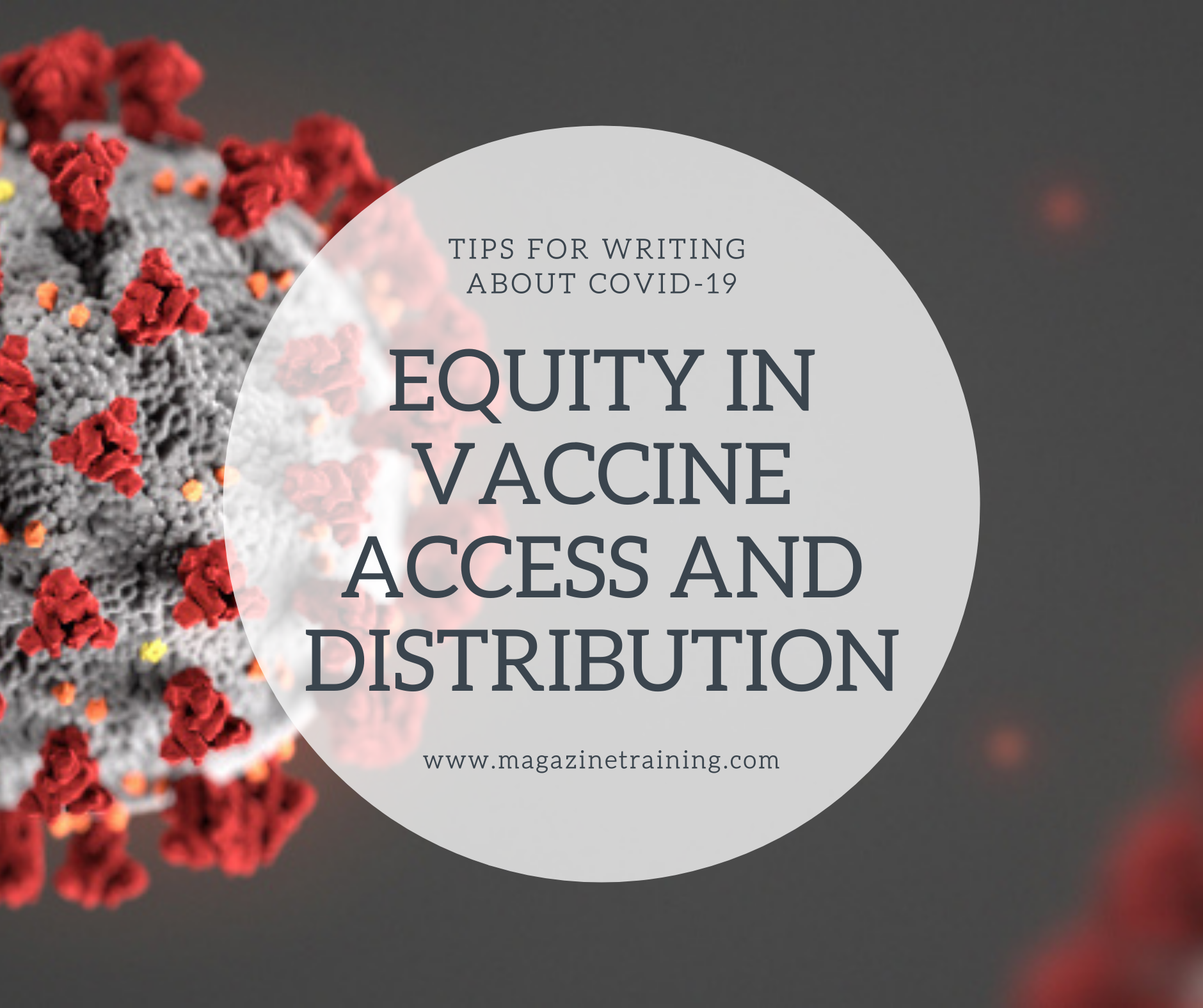
As countries around the world roll out COVID-19 vaccination campaigns, equitable access to the vaccines is an issue front and center.
More than half of all available COVID-19 vaccine doses have been ordered by wealthier nations, according to a story by Isaac Chotiner in The New Yorker. This leaves poorer countries less able to vaccinate their populations.
“Here we are, a vaccine, a critically important tool to help us fight the COVID-19 pandemic — what we are seeing is that these structural inequalities that exist have been magnified and accentuated,” said Harvard University professor Dr. Rifat Atun during a recent ICFJ Global Health Crisis Reporting Forum webinar.
Atun was joined by Georgetown University professor Dr. Claire Standley, and Marcelo Leite, a science and environment columnist at Folha de São Paulo, for a discussion on equitable vaccine distribution. Phillip Martin, an investigative reporter at The GBH News Center for Investigative Reporting in Boston, moderated the panel.
According to Atun, we’re currently operating under a global three-tier system for vaccine access and distribution:
- At the top of the pack are the U.S., Canada and countries in Western Europe. These wealthier countries have been able to enter into agreements to purchase and stockpile enough vaccines to cover their entire populations.
- Middle-income countries, such as Brazil, have purchased some vaccines, but not enough for all citizens.
- At the bottom of the pile are countries with fewer resources, such as in sub-Saharan Africa. These countries have limited access to vaccine doses.
As we continue our fight against the deadly coronavirus that has killed over 2.4 million people worldwide, it’s important for countries to acknowledge the interconnectedness of our health. As Leite put it: “No one is safe until everybody is safe.”
The lack of equity in vaccine distribution and access today has notable ramifications beyond immediate COVID-19 protection, too. “We are reaching a point where rich countries are going to vaccinate large proportions of their population before any significant number of Africans are vaccinated, leading to even greater inequities in terms of global health and economies because of the way that trade is being impacted by the pandemic,” said Standley.
The ACT-Accelerator is one major global initiative working to accelerate the development and production of COVID-19 tests, treatments and vaccines, while promoting equitable access. Run by the World Health Organization and partners, the Accelerator’s vaccine pillar, COVAX, is dedicated to facilitating both the discovery and development of effective vaccines. As part of its efforts, it aims to build manufacturing capacity to be able to fairly distribute two billion doses of vaccine by the end of 2021.
“The approach to COVAX was intended to give all countries access regardless of their ability to pay. The idea was to create a level, cooperative playing field where the COVAX facility could help navigate the landscape of vaccine production and manufacturing on behalf of participating countries, like some collective purchasing and bargaining power,” said Standley.
Higher-income countries pay into the COVAX procurement platform, to place vaccine orders for their own populations. This money-up-front policy allows for manufacturing to be ramped up with the idea that these funds will also pay for lower-income countries’ doses.
by Abigail Adcox, International Journalists’ Network
Related posts
Category: Uncategorized
Malnutrition is a health crisis affecting millions around the world — and one becoming more urgent as the pandemic continues. Its impact is not just represented in […]
Magazine Training International’s mission is to encourage, strengthen, and provide training and resources to Christian magazine publishers as they seek to build the church and reach their societies for Christ.

